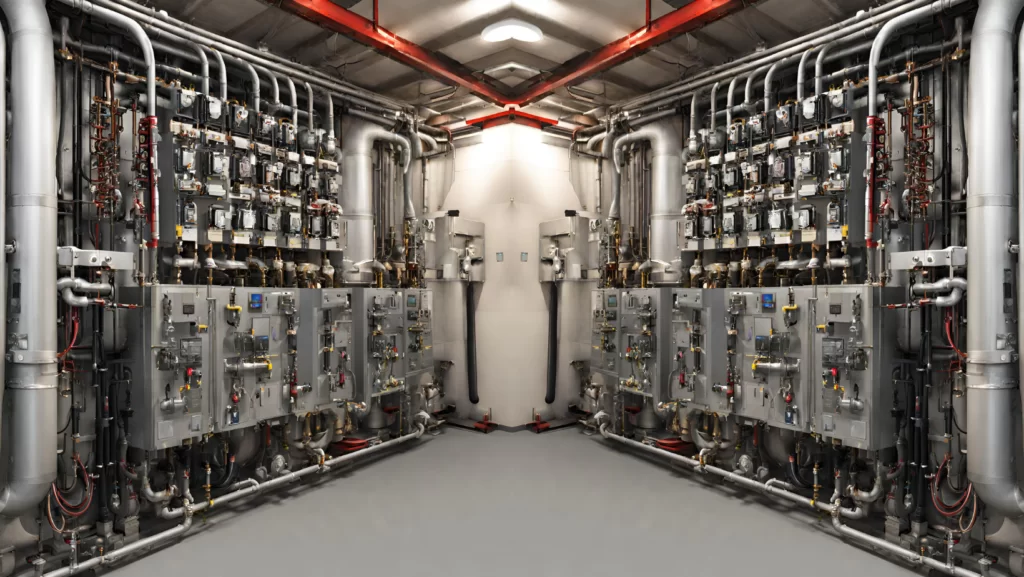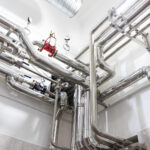As a business owner in the great state of Texas, you understand the importance of efficient and effective building management. One critical aspect that often goes overlooked is Mechanical, Electrical, and Plumbing (MEP) commissioning and testing. In this article, we will delve into the four best strategies to ensure successful MEP commissioning and testing for building owners in Texas.
Understanding Succesful MEP Commissioning and Testing
A succesful MEP commissioning and testing involve the thorough examination and evaluation of the mechanical, electrical, and plumbing systems within a building. This process ensures that these systems operate seamlessly, meet regulatory standards, and contribute to the overall efficiency and sustainability of the building.
Table of Contents
Strategy 1: Early Planning and Coordination
The foundation for successful MEP commissioning and testing lies in early planning and coordination. Start by establishing a comprehensive timeline that includes key milestones for commissioning and testing activities. Engage with the project team, including architects, engineers, and contractors, to integrate MEP considerations from the initial design phase. This proactive approach helps identify potential issues early on, reducing the likelihood of costly corrections during the construction phase.
Early coordination also involves clear communication between all stakeholders. Ensure that everyone involved in the project understands their roles and responsibilities regarding MEP systems. Regular meetings and updates can prevent misunderstandings and keep the project on track.
Strategy 2: Robust Documentation and Compliance
Detailed documentation is a cornerstone of successful MEP commissioning and testing. Business owners in Texas should prioritize comprehensive documentation that covers system specifications, installation details, and compliance with local building codes and regulations.
In the planning phase, work closely with your design and construction teams to create a detailed MEP commissioning plan. This plan should outline the scope of work, testing procedures, and acceptance criteria. Clear documentation facilitates a smoother commissioning process and ensures that all parties are on the same page.
Compliance with local regulations is paramount. Texas has specific building codes and standards that must be adhered to for MEP systems. Engage with a qualified commissioning agent who is well-versed in Texas regulations to guide your project towards compliance.

Strategy 3: Systematic Testing and Validation
Once the building is constructed, systematic testing and validation become crucial steps in the MEP commissioning process. Business owners should emphasize the importance of comprehensive testing protocols to verify the functionality and efficiency of each MEP system.
Initiate testing by conducting functional performance tests on individual components, such as HVAC systems, electrical panels, and plumbing fixtures. System integration tests should follow, ensuring that all MEP systems work seamlessly together. Business owners should insist on witnessing these tests to gain firsthand knowledge of the building’s systems.
Validation is equally important. Engage with independent third-party experts to validate the results of the commissioning tests. Their unbiased perspective adds credibility to the process and provides assurance that the MEP systems meet the necessary standards and specifications.
Strategy 4: Ongoing Monitoring and Maintenance
Successful MEP commissioning and testing are not the end of the road. Business owners in Texas should implement a robust system for ongoing monitoring and maintenance. Regular inspections and preventive maintenance activities can identify potential issues before they escalate, ensuring the long-term reliability of MEP systems.
Invest in building management systems that allow for real-time monitoring of MEP performance. This technology provides valuable insights into energy consumption, system efficiency, and potential malfunctions. Timely interventions based on these insights can prevent costly repairs and downtime.
Additionally, establish a proactive maintenance schedule that includes routine checks, filter replacements, and system calibrations. Regular training for building maintenance staff is essential to ensure they are equipped to handle minor issues and report more significant concerns promptly.
Conclusion
In conclusion, the success of MEP commissioning and testing for building owners in Texas hinges on early planning, robust documentation, systematic testing, and ongoing monitoring. By implementing these four strategies, business owners can ensure that their buildings not only meet regulatory standards but also operate efficiently, contributing to long-term sustainability and cost-effectiveness. Embrace the proactive approach, engage with qualified professionals, and prioritize ongoing maintenance to secure the success of your MEP systems in the vibrant landscape of Texas business.




